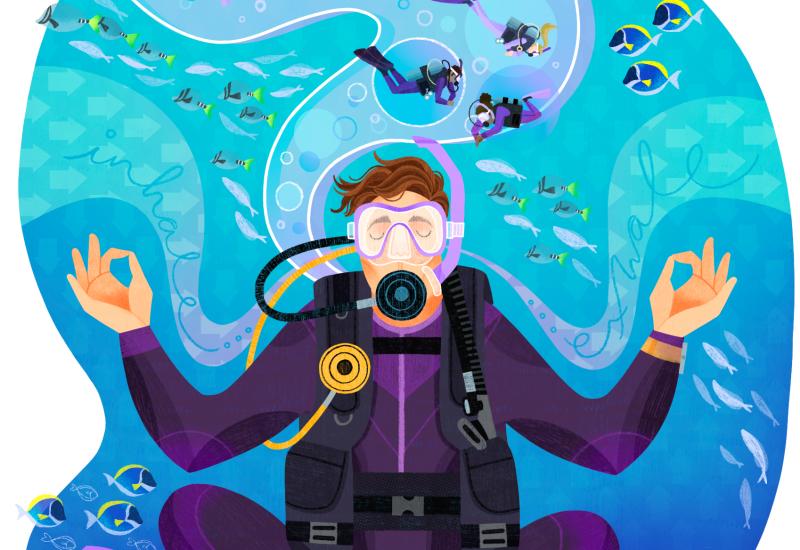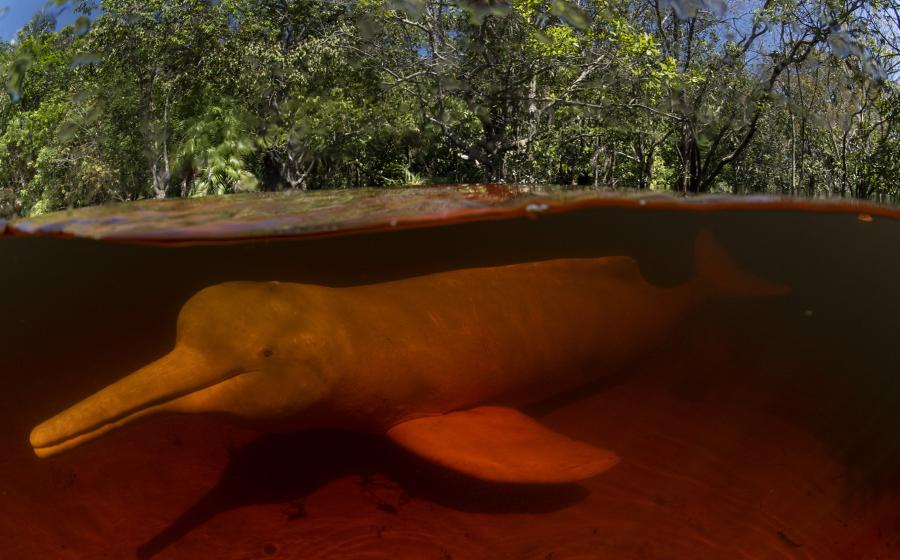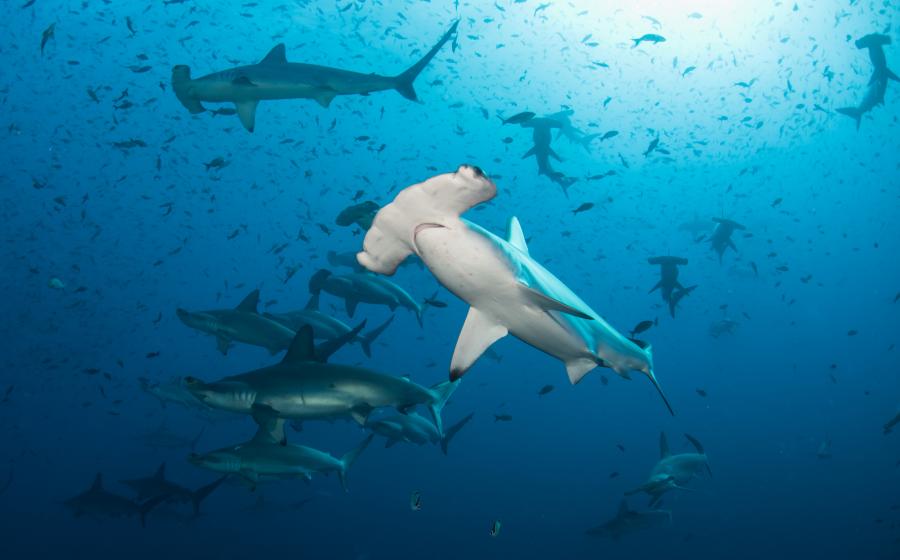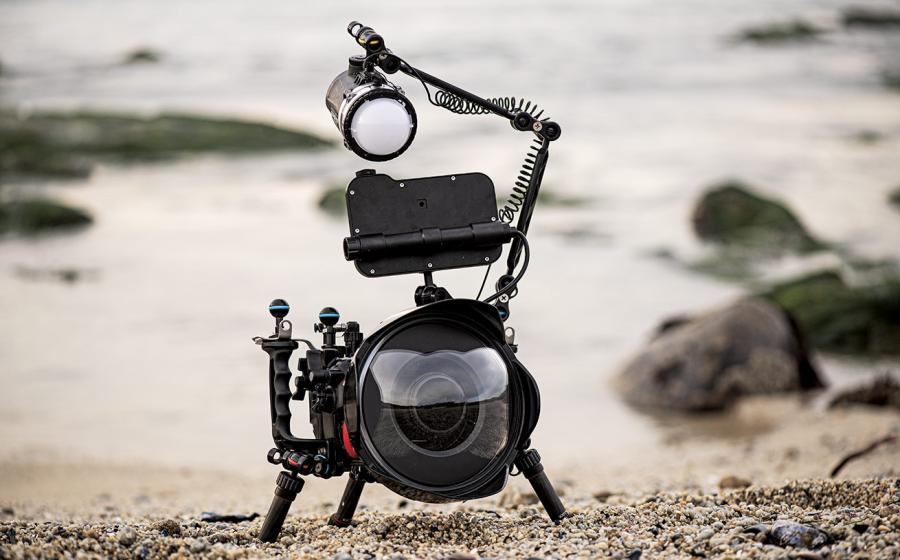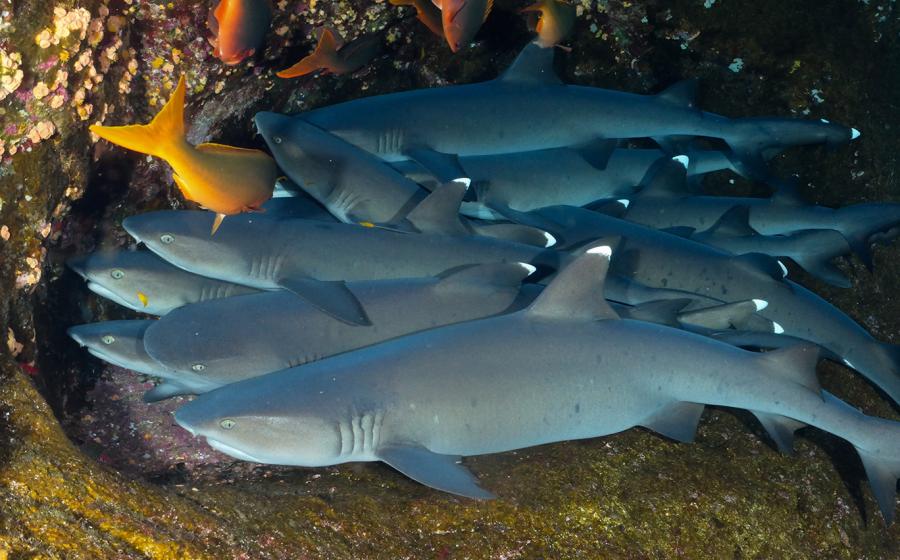Ask an Expert: Solo Diving, OK or No Way?

Is it OK to Solo Dive?
Experts weigh in on the experience, dedication and training necessary to tackle the task of scuba diving by yourself.
Eric Douglas
For many divers, the idea of diving alone doesn’t make any sense at all. To them, diving is a communal sport, and half the fun is sharing the experience. Too many dive accidents happen when a diver ventures away from his buddy and gets in trouble, turning what could have been an easily avoided problem into a fatal accident.
For others, the risk of diving with a buddy chosen on a dive boat without knowing the diver’s experience is worse than the risks of diving alone. Many divers effectively photograph or spearfish on their own because they are concentrating on their hobby rather than paying attention to their buddy.
Solo Diving is a Safe Practice
Husband-and-wife dive-instructor team Michael and Felicia Berg believe in solo diving and teach the course to other divers. “Photographers and spearfishermen dive solo even though they have a buddy. Anyone who buddies up with them knows what I’m talking about. Learning to be self-reliant is what the solo-diver course teaches. It makes you a better buddy too, and the prerequisite is more than 100 logged dives (and then taught only at the instructor’s discretion).
No newbie open-water divers should ever dive alone,” Michael says. “Nearly every dive professional is solo diving whether they admit to it or not. I personally would prefer to dive with at least a loose buddy system, though I must say I am a big advocate of the training and the experience and education it provides. As an instructor, I see a real need to provide and teach solo diving to those who have experience and a need. I feel that every dive professional should at least sit through a solo course,” Felicia says.
Solo Diving isn’t for Everyone
On the other side, Tinamarie Hernandez asks this question: “Why would anyone want to dive solo? Isn’t most of the fun sharing what you saw when you come up from the dive? Or pointing to stuff while you are down there?”
Wendy Quimby, a technical and cave diver, says it’s all about equipment and preparation. “I think if you are going to dive solo, you should have certain things in place: top-notch basic scuba skills (mask fooding/replacement, regulator retrieval, etc.), spare mask, pony bottle or extra tank with enough gas to get to the surface safely from the deepest part of the dive planned, as well as other equipment like a surface-marker buoy with signaling abilities. I have done solo diving, though I prefer to share the dive with others.”
Emmy award-winning underwater videographer Frazier Nivens sums up both sides of the discussion: “All divers should be solo trained and able to rely on themselves to reach the surface safely unless a medical condition arises. But don’t get me wrong, new divers should never dive alone. Just train them to be self-reliant.”
Conclusion
Scuba diving is a social, buddy-driven sport. It makes sense on many levels for divers to dive with a buddy. It’s more fun, and usually safer, to dive with others around. Many Lessons for Life columns detail what can happen when a diver ventures out on his own, and the ending often is not a happy one.
Solo diving has a purpose and many advocates, and there are times of crisis when divers have no one to help them. “Aren’t all instructors solo diving when teaching anyway? No student can save you in an open-water course,” dive instructor Paul Shepherd says.
Solo diving is not something to begin willfully and without preparation. For divers thinking about going solo, there is necessary training to take and additional equipment to purchase to be prepared for a potentially bad situation. After all, there won’t be a buddy close by to ask for help if it’s needed.
------------------------------------
For more top-notch expert advice and scuba diving training tips, check out some of our past Ask an Expert articles:
Should You Ever Enter a Wreck Without Training?
Should New Divers Learn Lifesaving?
Is Manipulating Marine Life Ever OK?
Click and find out!
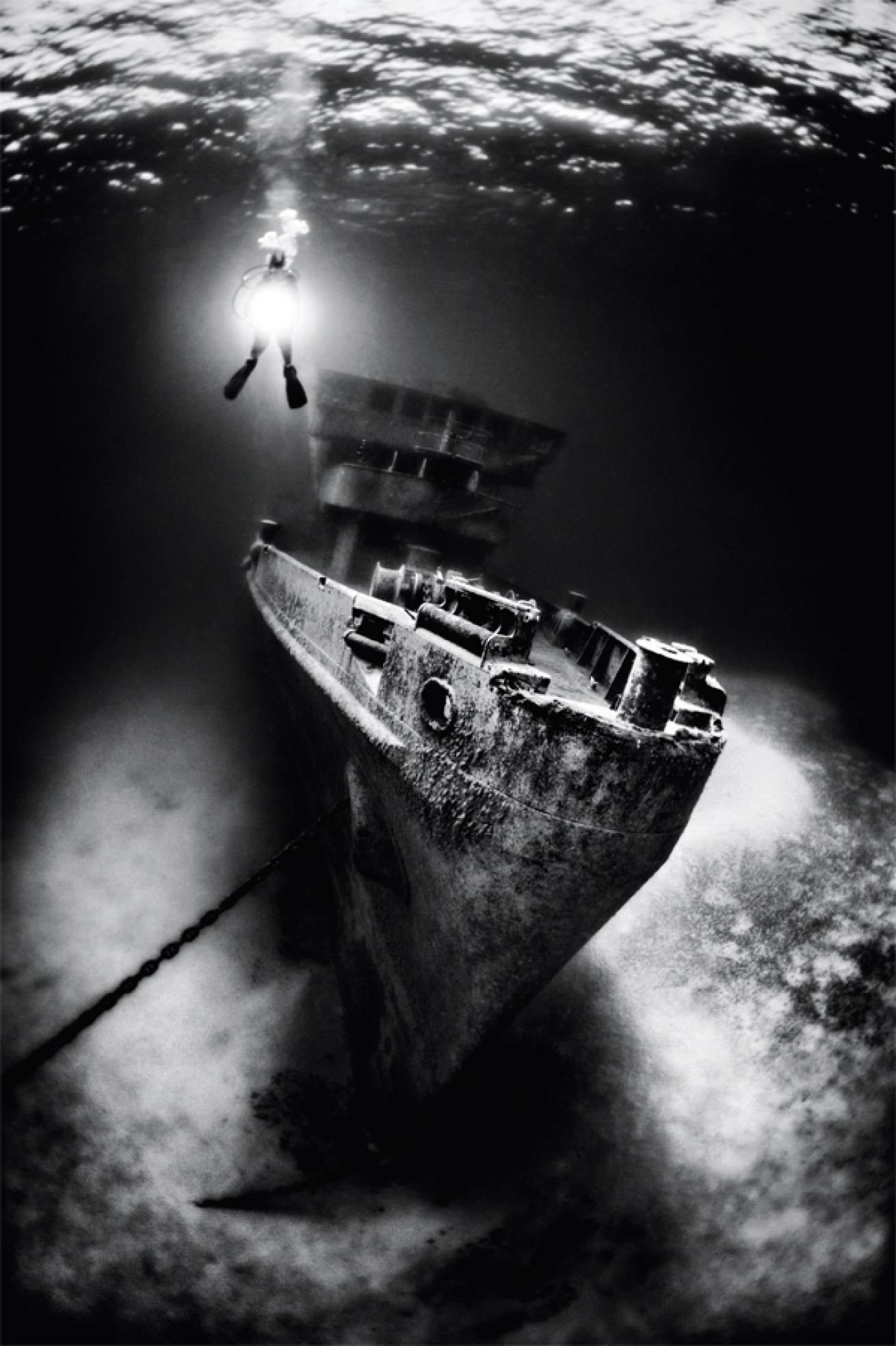
Eric DouglasExperts weigh in on the experience, dedication and training necessary to tackle the task of scuba diving by yourself.
For many divers, the idea of diving alone doesn’t make any sense at all. To them, diving is a communal sport, and half the fun is sharing the experience. Too many dive accidents happen when a diver ventures away from his buddy and gets in trouble, turning what could have been an easily avoided problem into a fatal accident.
For others, the risk of diving with a buddy chosen on a dive boat without knowing the diver’s experience is worse than the risks of diving alone. Many divers effectively photograph or spearfish on their own because they are concentrating on their hobby rather than paying attention to their buddy.
Solo Diving is a Safe Practice
Husband-and-wife dive-instructor team Michael and Felicia Berg believe in solo diving and teach the course to other divers. “Photographers and spearfishermen dive solo even though they have a buddy. Anyone who buddies up with them knows what I’m talking about. Learning to be self-reliant is what the solo-diver course teaches. It makes you a better buddy too, and the prerequisite is more than 100 logged dives (and then taught only at the instructor’s discretion).
No newbie open-water divers should ever dive alone,” Michael says. “Nearly every dive professional is solo diving whether they admit to it or not. I personally would prefer to dive with at least a loose buddy system, though I must say I am a big advocate of the training and the experience and education it provides. As an instructor, I see a real need to provide and teach solo diving to those who have experience and a need. I feel that every dive professional should at least sit through a solo course,” Felicia says.
Solo Diving isn’t for Everyone
On the other side, Tinamarie Hernandez asks this question: “Why would anyone want to dive solo? Isn’t most of the fun sharing what you saw when you come up from the dive? Or pointing to stuff while you are down there?”
Wendy Quimby, a technical and cave diver, says it’s all about equipment and preparation. “I think if you are going to dive solo, you should have certain things in place: top-notch basic scuba skills (mask fooding/replacement, regulator retrieval, etc.), spare mask, pony bottle or extra tank with enough gas to get to the surface safely from the deepest part of the dive planned, as well as other equipment like a surface-marker buoy with signaling abilities. I have done solo diving, though I prefer to share the dive with others.”
Emmy award-winning underwater videographer Frazier Nivens sums up both sides of the discussion: “All divers should be solo trained and able to rely on themselves to reach the surface safely unless a medical condition arises. But don’t get me wrong, new divers should never dive alone. Just train them to be self-reliant.”
Conclusion
Scuba diving is a social, buddy-driven sport. It makes sense on many levels for divers to dive with a buddy. It’s more fun, and usually safer, to dive with others around. Many Lessons for Life columns detail what can happen when a diver ventures out on his own, and the ending often is not a happy one.
Solo diving has a purpose and many advocates, and there are times of crisis when divers have no one to help them. “Aren’t all instructors solo diving when teaching anyway? No student can save you in an open-water course,” dive instructor Paul Shepherd says.
Solo diving is not something to begin willfully and without preparation. For divers thinking about going solo, there is necessary training to take and additional equipment to purchase to be prepared for a potentially bad situation. After all, there won’t be a buddy close by to ask for help if it’s needed.
------------------------------------
For more top-notch expert advice and scuba diving training tips, check out some of our past Ask an Expert articles:
Should You Ever Enter a Wreck Without Training?
Should New Divers Learn Lifesaving?
Is Manipulating Marine Life Ever OK?
Click and find out!



